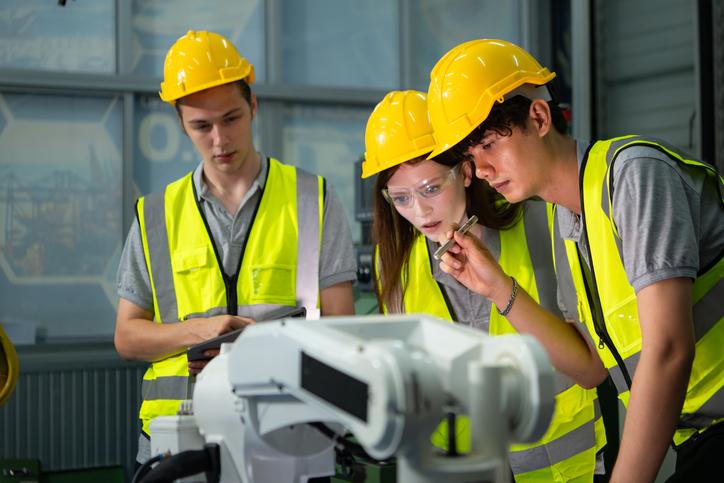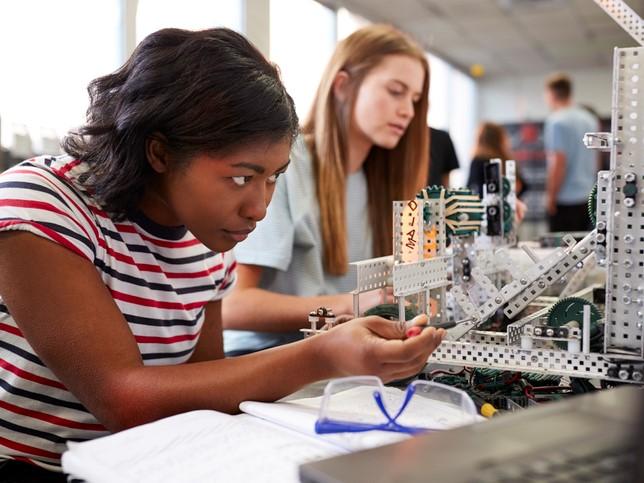Engineering education is increasingly being called upon to adapt to the complex requirements of today’s workplaces. Companies are looking for both technical and non-technical skills such as people skills, creativity and analytical skills.
Higher education providers are exploring innovative approaches, in the UK and internationally. In this article, I briefly describe four points that universities could incorporate in their curriculums to transform engineering education. Opinions presented here are based on my reflection of teaching at the New Model Institute for Technology and Engineering, discussion with companies that hire graduate engineers and other national and international teaching experiences.
Context-based learning for engineering students
Context-based learning contextualises project- and problem-based learning. Some universities do use this approach to limited extent, but more work is needed. It can be implemented in any course module with a suitable challenge. Ideally, the challenge should come to students from a “challenge partner” that is facing the given challenge. A challenge partner can be a national or international corporation, charity, local community or non-government or government organisation.
- Messy decisions and creative science in the classroom
- What are the barriers to success for underrepresented ECRs in maths, physics, computer science and engineering?
- What does a 21st-century research and science system look like?
Briefing from the partner (in-person or online) makes the challenge more realistic and motivates students to actively solve the challenge. This could include inviting the challenge partner to describe the challenge to students, designing assessments that are driven by the challenge and allowing the challenge partner to provide feedback to solutions devised by students.
Challenges would be module specific and enable students to meet learning outcomes of the module. For instance, a challenge could be improving the performance of a manufacturing plant. In such a case, the challenge partner could be a local manufacturing plant and a representative from the plant could be invited to brief students about the challenge.
Any module relevant to the United Nations Sustainable Development Goals (SDGs) could also include a problem-based challenge.
Teaching team-working skills
Many workplaces and projects require engineers to work in teams with people from different backgrounds, so team-working needs to be strongly embedded in engineering coursework. Context- and problem-based learning requires students to solve engineering challenges in teams, and several institutions already adopt a limited degree of problem-based learning in their coursework. However, the degree of teamwork needs to be increased. Also, how to work effectively in teams is often not taught, and students are left on their own to develop team-working skills.
Universities need to teach engineering students how to be team players. They should provide lessons on effective communication, how to listen attentively and understanding and respecting diverse opinions. These are all key elements of effective team-working. In addition to providing valuable team-working tips, a template can be provided to students for guidance. The template could include sections such as roles and responsibilities of team members, individual action logs, completed tasks, remaining tasks, required actions and resources for tasks.
Widening access to engineering education
One-dimensional thinking that all engineers must be very good at mathematics is not always correct, so engineering institutions should not require entry-level students to have very high mathematical competence, in my view. Yes, engineers require these skills, but the degree of competence needed can be varied and context-specific.
Engineering problems often require a combination of skills to develop effective solutions. Creativity and out-of-the-box thinking are also needed at times to solve engineering problems. Applicants with average mathematics skills but high creativity and passion for engineering should also be granted admission to engineering programmes, in my opinion. Talking to employers of engineering graduates, ranging from small- and medium-sized enterprises to large companies, I have found that non-technical skills such as a can-do attitude, inquisitiveness and a proactive nature are highly sought-after attributes. The New Model Institute for Technology and Engineering does not require A-level mathematics (roughly equivalent to the senior year of high school in the American system) as an admissions requirement for its bachelor’s and master’s engineering programmes, and I think more institutions should adopt this practice.
Engineering education should be made accessible to anyone with a love for engineering. Widening access to engineering education has the potential to revolutionise the sector by creating a synergy where artists, mathematicians and other professionals come together to design engineering projects.
Embedding humanities and liberal arts
Humanities and liberal arts need to be deeply ingrained in engineering education, in my opinion. This is because engineering projects generally require a combination of technical and non-technical skills for effective completion. On top of that, engineers need to be aware of the social impacts of their profession. Also, the global threats faced by today’s society require holistic and systems thinking because no single discipline can tackle major global challenges. For these reasons, liberal arts and humanities content such as ethics, sustainability and social inclusion should be embedded in engineering coursework. A liberal arts education will also train students to critically ask the overarching question of why engineers do what they do from different perspectives.
By incorporating the above four points, universities and higher education institutions could transform engineering education. This has the potential to produce new types of engineering graduates who can use systems thinking to tackle global problems.
Parakram Pyakurel is an assistant professor at the New Model Institute for Technology and Engineering (NMITE), UK.
If you would like advice and insight from academics and university staff delivered direct to your inbox each week, sign up for the Campus newsletter.




comment1
(No subject)